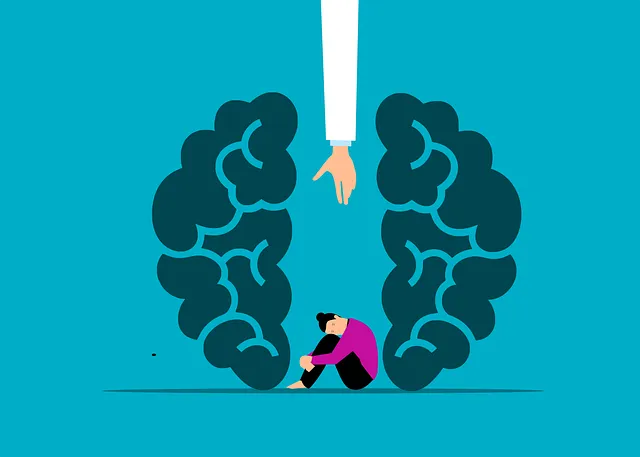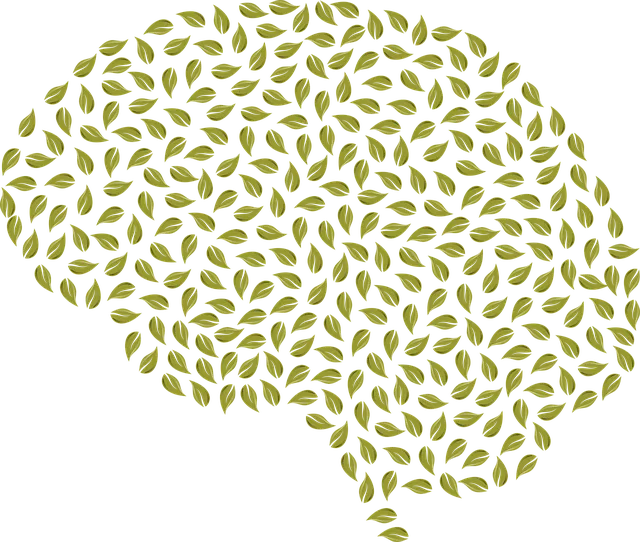Golden Kaiser Permanente mental health services tackle substance abuse through specialized support, cultural competency, evidence-based treatments, and comprehensive risk reduction programs like Depression Prevention. They foster empathy and connection, empower individuals with coping skills and personal strategies (e.g., Social Skills Training, Emotional Regulation), and build community support to create healthier environments, ultimately promoting lasting recovery.
Substance abuse poses significant risks to individuals and communities. This article delves into comprehensive risk reduction strategies aimed at mitigating the detrimental effects of substance misuse. We explore critical aspects such as understanding the complexities of substance abuse, leveraging the expertise of Golden Kaiser Permanente Mental Health Services, tailoring individual-specific plans, and fostering community support for prevention. By examining these key elements, we aim to equip readers with insights into effective measures to combat substance abuse and promote well-being.
- Understanding Substance Abuse and Its Risks
- The Role of Golden Kaiser Permanente Mental Health Services
- Individualized Risk Reduction Strategies
- Community Support and Collective Efforts for Prevention
Understanding Substance Abuse and Its Risks

Substance abuse is a complex issue that impacts individuals across all demographics. It’s characterized by patterns of misuse or dependence on substances like drugs and alcohol, leading to adverse effects on health, relationships, and daily functioning. The risks associated with substance abuse are multifaceted, encompassing physical and mental health complications, legal troubles, financial strain, and social isolation. At its core, addressing substance abuse requires a deep understanding of the underlying causes, which can vary widely from person to person.
Golden Kaiser Permanente mental health services play a vital role in mitigating these risks by offering specialized support tailored to individual needs. Through comprehensive assessments and evidence-based treatments, their healthcare providers equip individuals with coping mechanisms and skills for managing addiction effectively. Cultural competency training among healthcare providers is essential here, fostering empathy building strategies that resonate across diverse backgrounds. Additionally, initiatives like Depression Prevention programs within these services address co-occurring disorders commonly linked to substance abuse, further reinforcing comprehensive risk reduction strategies.
The Role of Golden Kaiser Permanente Mental Health Services

Golden Kaiser Permanente Mental Health Services plays a pivotal role in mitigating risks associated with substance abuse through comprehensive care and support programs. These services are designed to address the multifaceted needs of individuals battling addiction, offering more than just treatment; they foster Empathy Building Strategies that create safe spaces for vulnerable populations. By integrating these strategies into their approach, Kaiser Permanente facilitates improved communication, understanding, and connection between patients and healthcare providers, enhancing the overall effectiveness of substance abuse prevention and intervention programs.
Beyond addressing immediate health concerns, the mental health services focus on Burnout Prevention by equipping individuals with essential Coping Skills Development. This proactive measure enables clients to manage stress, make healthier choices, and avoid triggers that could lead to substance misuse. Through a combination of counseling, therapy, and community support, Kaiser Permanente empowers its patients to take control of their mental well-being, thereby significantly reducing the risk of relapse and promoting lasting recovery.
Individualized Risk Reduction Strategies

Golden Kaiser Permanente mental health services recognize that substance abuse risks vary greatly from person to person. Therefore, they tailor risk reduction strategies to individual needs. This personalized approach considers unique factors like past experiences, mental health history, and personal goals. Each plan is designed to empower individuals with effective coping mechanisms, focusing on both the root causes of addiction and specific triggers.
One such strategy involves Social Skills Training to enhance relationships and build a supportive network, which is crucial for emotional well-being. Additionally, Emotional Regulation techniques teach individuals to manage stress and control impulses, while Self-Esteem Improvement programs foster a positive self-image, reducing the likelihood of turning to substances as a coping mechanism.
Community Support and Collective Efforts for Prevention

Community support plays a pivotal role in mitigating substance abuse, fostering healthier environments where individuals can thrive without the burden of addiction. Golden Kaiser Permanente mental health services recognize this collective responsibility and often lead collaborative efforts to prevent substance misuse. By bringing together community members, healthcare professionals, educators, and local organizations, these initiatives aim to create awareness, promote positive thinking, and implement effective stress management techniques from a young age.
Such collective actions may include peer support groups, educational workshops in schools, and community-based programs that encourage open conversations about mental health and mood management. These efforts not only help identify potential issues early on but also empower individuals with the tools to make informed choices, fostering a culture of resilience and well-being.
Substance abuse poses significant risks, but with comprehensive strategies, these can be effectively mitigated. Understanding the problem is the first step, followed by tailored interventions like those offered by Golden Kaiser Permanente Mental Health Services. Individualized risk reduction plans, combined with community support and collective efforts, create a robust prevention framework. By leveraging resources such as mental health services, we can foster healthier communities and improve overall well-being.






